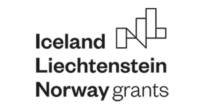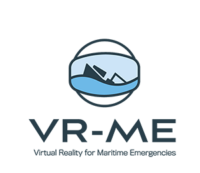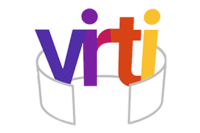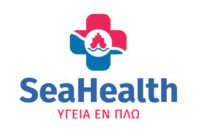Project framework: Supported by a grant from Iceland, Liechtenstein and Norway through the EEA Financial Mechanism 2014 2021 in the frame of the Programme “Business Innovation Greece”
Duration: 24 months
Contact: Mr. Dimitris Georgiadis
E-mail: dgeorgiadis@sqlearn.com, eu-projects@sqlearn.com
The shipping industry often operates in hazardous environments that carry many economic and environmental risks that make the safety factor particularly critical. As most accidents or errors that occur onboard are due to human error, proper crew training is particularly crucial.
The “Brave Dolphin” project takes advantage of the multiple benefits of virtual reality technology to provide an innovative training tool for the shipping industry. In the framework of the project, a Virtual Reality application will be developed for the training of seafarers on emergencies that may occur onboard. This application will include interactive scenarios and will give the user a sense of presence in the simulated environment in which he will be encouraged to interact with, offering an exciting and safe learning experience.
The project is supported by a grant from Iceland, Liechtenstein and Norway through the EEA Financial Mechanism 2014 2021 in the frame of the Programme “Business Innovation Greece”
VR-ME – Virtual Reality for Maritime Emergencies
Project framework: European Programme Erasmus+
Duration: 30 months (01/12/2019-31/05/2022)
Partners: 6 partners from 5 European Countries
Contact: Mr. Dimitris Georgiadis
E-mail: dgeorgiadis@sqlearn.com, eu-projects@sqlearn.com
Website: https://vr-me.eu/
Emergencies in ships are stressful situations where crews must follow specific guidelines and procedures to assure their safety. According to several studies, most fatal accidents in the fishing sector were due to the lack of knowledge on emergency procedure management, or because of the non-completion of periodic training exercises and simulations.
To remedy emergencies situations, the VET entities of the maritime sector, offer to the crewmen only guidelines and handbooks but they do not have any sort of tool of how to react properly in these situations, and at the same time it is extremely difficult to perform such training onboard.
The VR – ME Project aims to develop a more effective training tool, through the use of VR technology, where the participants can experience these emergency situations in immersive environments, moving around a 3d universe and interacting with people and objects.
Professionals of the fishing sector
VET providers and academies in the fishing sector and work safety
Public & Private entities working in labor safety
Professional Associations of fishermen
- Prepare fishermen to better face emergency situations onboard
- Decrease of accidents and fatalities rate
- Got towards harmonization of emergency procedures onboard
- Increase computer literacy of fishing professionals and the digitalization in the sector.
ViRTI- Virtual reality for training inmates
Project framework: European Programme, Erasmus+
Duration: 24 months (12/2020 – 11/2022)
Partners: 4 partners from 4 European Countries
Contact: Mr. Dimitris Georgiadis
E-mail: dgeorgiadis@sqlearn.com, eu-projects@sqlearn.com
The ViRTI project arises from the need to improve the educational environment and expand the training offer for inmates, who generally have limited access to technical facilities because they are in a closed and restricted environment. Thus, ViRTI aims to use virtual reality technologies by creating virtual environments, compensating for the scarcity of resources (such as laboratories, materials and tools) in prison facilities. In addition, by introducing interactive and gamification features in the learning contents provided to inmates, it will be possible to attract more participants and maintain their motivation, thus reducing drop-out rates. With this project, it will be possible to increasingly encourage the application of content based on virtual reality in prisons, which will collaborate with education and training providers for this purpose. In this way, more inmates will benefit from this added value, as they will develop skills and competencies, and acquire knowledge about sectors of the economy where there is a scarce workforce, hence increasing their employability.
staff managing and belonging to the prison administrations,
educators and trainers working with prisoners,
interactive content learning providers,
prisoners
- Develop the use of virtual reality technologies for inmates’ training;
- Determine the conditions for the successful introduction of virtual reality technologies in prison services for the training of prisoners;
- Motivate inmates to engage in training;
- Leverage on the interactions enabled by virtual reality to develop the inmates’ basic and transversal competencies;
- Develop guidelines for the use of virtual reality in the training of prisoners
CRANE 4.0 – A Digital Trainers Toolbox To Help Crane Operators Update Their Skills for Industry 4.0 Environments
Project framework: European Programme, Erasmus+
Duration: 30 months (01/11/2019-30/04/2022)
Partners: 6 partners from 5 European countries
Contact: Mr. Dimitris Georgiadis
E-mail: dgeorgiadis@sqlearn.com, eu-projects@sqlearn.com
Website: https://www.erasmuscrane40.com/
The CRANE 4.0 Project aims to up-skill and re-skill the European construction labor force with new skills to meet the demand of the labor market for new digital skills.
The Project focuses on crane operations because they have a major influence on construction sites, especially in terms of efficiency and safety. However, with the growing usage of cranes, the number of crane – related accidents has grown enormously, and the participating countries are among the EU members with the highest fatal accident rates in the construction sector.
Because of the lack of a highly skilled workforce in the corresponding sector, and with a view of reducing the high rates of fatal accidents in the work field, the CRANE 4.0 Project aims to develop an innovative application through with the usage of VR technology to train the crane operators in order to be up-skilled or re-skilled with the required competences.
Crane operators
VET professionals working in a variety of contexts (Public Employment Services, Job Counselling, VET Organizations, Careers Counselling, Placement Officers, in-house trainers) who are willing to be trained on the use of VR for the delivery of a training course
Construction sector stakeholders (trade unions, chambers of commerce and companies)
- Improve the adaptability of crane operators to the labor market and increase their skills for Industry 4.0.
- Develop an innovative training course with the use of VR to boost the employability of crane operators in Industry 4.0 and the professional development of VET teachers with the use of effective digital, open and innovative education and pedagogies, as well as practical tools.
- Facilitate the delivery of training that would be otherwise too expensive or risky through the adoption of a VR.
- Increase the competitiveness and adaptability of the organizations who will adopt the training to face the requirements of the industrial changes.
DTraiN– Design Thinking for Entrepreneurship in Agri-food Sector
Project framework: European Programme, Erasmus+
Duration: 32 months (01/09/2019-30/04/2022)
Partners: 7 partners from 4 European countries
Contact: Mr. Dimitris Georgiadis
E-mail: dgeorgiadis@sqlearn.com, eu-projects@sqlearn.com
Website: https://www.dtrain.eu/
The DTraiN project aims to revitalize the production in the agri-food sector of partners regions, by promoting the acquisition of high-quality skills for managing staff and entrepreneurs working in the sector.
Professionals working in the agri-food sector lack the skills for the fortification of local products brand names, and to face the challenge of the constantly changing and highly competitive economic environment. The Design Thinking methodology has been used to revolutionize entire industries and establish an enviable competitive advantage for their companies. Focused on listening, user empathy, whole-brain thinking, collaboration and experimentation, Design Thinking can be applied in any field and product development to business planning and beyond.
Based on the above, in the framework of this project, a European “Design Thinking” professional profile will be developed, based on a qualification scheme for validating learning outcomes, according to ECVET recommendations, and in line with ISO 17024 norm.
Professionals managing staff in agri-food companies that act as work-based trainers in their companies
Educators in initial and continuous Vocational Training Institutes
- Design a VET Curriculum and develop training content for professionals in the agri-food sector, willing to upgrade their skills in Design Thinking for innovation methodology.
- Design an innovative educational model based on a learner-centered approach, in a flipped classroom ubiquitous environment.
- Develop training material based on the educational model.
- Develop a Qualification scheme.
SeaHealth (Υγεία εν πλω)
Project framework: RESEARCH – CREATE – INNOVATE,
First Circle
Duration: 36 months (06/09/2018 – 05/09/2021)
Partners: SQLearn, UOA, DANAOS
Contact: Mr. Dimitris Georgiadis
E-mail: dgeorgiadis@sqlearn.com, eu-projects@sqlearn.com
Website: www.seahealth.net/
The research project “Elearning platform for Seafarers for first aid and health issues”- SeaHealth (Υγεία εν πλω) through the Operational Program Competitiveness, Entrepreneurship and Innovation under the call RESEARCH –CREATE –INNOVATE aims at the development of an asynchronous training platform that includes elementary basic knowledge, examples, video, animation as well as realistic scenarios through which onboard personnel will receive credible and structured knowledge on how to deal with medical incidents on board.
The project is implemented by SQLearn and Danaos Management Consultants in collaboration with the 1st Otolaryngology Clinic of National and Kapodistrian University of Athens (UOA) and is Co‐financed by the European Union and Greek national funds through the Operational Program Competitiveness, Entrepreneurship and Innovation, under the call RESEARCH – CREATE – INNOVATE (project code:Τ1EDK-03122).
- The recording of acute medical incidents onboard and occupational illnesses of seafarers, their evaluation and the search for best possible interventions, improving health services and enhancing prevention.
- The development of a training platform on health and care issues for seafarers with the use of e-learning libraries from Dolphin Platforms of SQLearn.
- The training and evaluation from seafarers who will be asked to evaluate the new platform with the aim of its improvement before its placement on the market.
- The development of a synchronous and asynchronous intervention platform, with image and sound, to transfer as much and more reliable information to medical personnel ashore to provide medical advice.
- To test the platform on board.
- The dissemination and commercial exploitation of the platform globally.
GSS-VET – Geothermal and solar skills – Vocational education and training
Project framework: European Programme Erasmus+, Sector Skills Alliances
Duration: 36 months (01/11/2016-31/10/2019)
Partners: 15 from 4 European countries
Contact: Ms. Eleni Gerasimopoulou
Website: http://gss-vet.eu/
The EU’s strategy for sustainable growth, Europe 2020, puts innovation and green growth at the heart of its blueprint for competitiveness, leading to a whole new demand for environmental skills in the construction sector. However, training providers have not yet caught up with this new skills demand, creating an important skills gap in the current labor market, as highlighted in the “Green skills and environmental awareness in vocational education and training” report from CEDEFOP.
Following the identification of skills needs, the partners will create innovative training including work-based learning, ubiquitous learning and flipped classroom for geothermal and for solar energy system installers (EQF level 4-5). The training content will be focused on technical skills but also on transversal ones, including entrepreneurship, ICT, interdisciplinary skills and the ability to work effectively with people from other disciplines. For the above, an e-Learning Platform is to be designed with corresponding digitalized content.
- Designing 2 EU core curricula (EQF level 4-5) for geothermal and for solar energy system installers, divided in sets of learning outcomes i.e. two corresponding VET programs, including innovative teaching methods, work-based learning and two qualification standards for evaluation and certification based on the ISO 17024 and the ECVET recommendations,
- Implementing, delivering, evaluating and certifying the above-described training.
- Enhancing creativity and innovation incl. entrepreneurship at all levels of VET
- Promoting work-based learning incl. traineeships, apprenticeships and dual learning models to help transition from learning to work
- Promoting a partnership between public and private institutions
- Reaching the objective of 15% of adults to participate in lifelong learning
- Making lifelong learning and mobility a reality.
Ex.Tra-3D – Experiential Training for 3D Virtual
Project framework: European Programme Erasmus+
Duration: 30 months (01/09/2015-28/02/2018)
Partners: 10 from Europe countries
Contact: Ms. Eleni Gerasimopoulou
Website: www.extra3d.eu
Website: elearning.extra3d.eu
The European project, Ex.Tra-3D aims at developing an integrated training system through the use of serious games practices and augmented reality technologies, which will provide employees at postal organizations the ability to track, acquire, broaden and self-assess the necessary competencies arising from their daily tasks.
In short, the project aims at developing a simulation application based on real-life scenarios integrating serious gaming techniques to facilitate the development, evaluation and certification of knowledge, skills and competencies relevant to customer service within postal organizations while opening further possibilities for horizontal generalization in any service-oriented business sector.
The project is addressed to front-office employees who constitute the main sales force and contact persons for customers and whose effectiveness is crucial to enhance the organization’s brand name, increase its market share, collect user needs and feedback, service customers and handle complaints.
The crucial role of employees working in customer service positions is observed not only in the postal services in the EU but also in any other business sector related to retail sales of products and/or services, requiring employees to conform with new demands throughout their entire career path.
Therefore, the project is expected to achieve the following objectives:
- Development of postal employees’ capacity (knowledge, skills and competencies) to respond effectively to their daily tasks related to customer service (i.e. promotion, sales, complaints management etc.),
- Support employees towards the introduction of new, integrated, high-value services that exploit fully the postal network size and reach,
- Reinforcement of employability through the acquisition of new enhanced digital skills and competencies,
- The exploitation of the ICT business advantages and their role in the continuous improvement of operations in terms of time, cost and quality,
- Certification of Customer Service Skills for front-office employees,
- Alignment of training with the ECVET framework.
P4i – Playing for Interculturality
Project framework: Grundtvig LLP programme
Duration: 24 months (01/11/2011-30/10/2013)
Partners: 7 from Europe and America
Website: www.p4i-project.eu
Contact: Dr. Antonis Frigas
While the latest tendencies point at a rather low level of adult population participation in lifelong learning initiatives, despite the increasing efforts in promotion and diversity of programmes, the project aims at developing a social game, offering innovative and attractive means to develop intercultural and key competences.
During the lifetime of the project-specific research activities will be carried out on web-based game initiatives in adult education, and intercultural competencies will be defined to be trained in informal and non-formal environments. The final reports “Success stories – a compilation of game–based initiatives in adults´ education” and “Recommendations for the development of informal intercultural training itineraries” will be available in the “RESULTS” section.
As a result, an innovative social game will be developed that promotes apprenticeship of intercultural competences of European adults, motivating them to take an active role and interact with other users, boosting key competences, such as digital socialization and media literacy in parallel.
iSIMPLY – Innovative Social Media Pedagogy Learning Pathways
Project framework: Transversal KA3ICT- LLP programme
Duration: 24 months (01/11/2011-30/04/2014)
Partners: 7 from Europe
Website: www.isimply.eu
Contact: Sophia Theodoropoulou
iSIMPLY is an innovative project aiming to investigate how social media interaction can help create new learning resources for the selected target group, namely professionals in marketing.
The project aims to create an innovative social media collaborative learning model & associated e-environment where the use of social media tools will enable social media marketing professionals to interact while the smart system will create training content.
EEGS – E-Learning Exercise Genexis System
Project framework: Transfer of Innovation – LLP programme
Duration: 24 months (01/11/2010-30/10/2012)
Partners: 6 from Europe
Website: www.linkconsulting.it/eegs/
Contact: Sophia Theodoropoulou
The EEGS is a project under the LLP -Leonardo Da Vinci – Transfer of Innovation and responds to support improvements in quality and innovation in vocational education and training systems, institutions and developing skills in the practices (LEO-SpObj-b) and skills of trainers in vocational training (LEO-TraInno-3).
The direct beneficiaries of the project will be the teachers/professors and pupils/students of vocational schools and training in the participating European countries.
The project aims to encourage dialogue with stakeholders, to train teachers in ICT, promote good practices and their ability to transfer, to encourage dialogue between vocational education and training structures and the labor market in order to design training courses that have a direct impact on the labor market, to focus on creating new skills.








